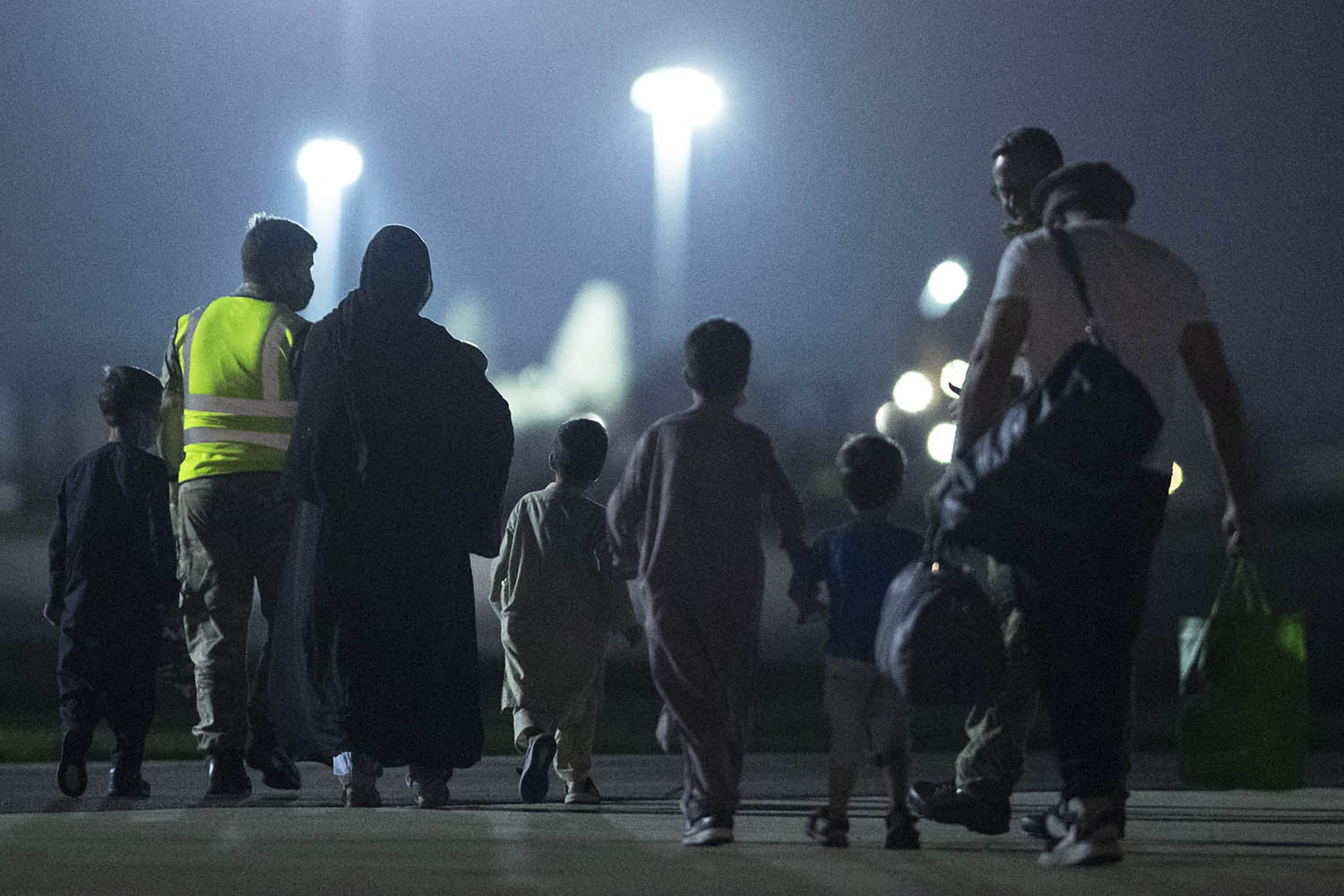
- Georgia officials started investigating threats against Trump grand jurors.
- Maui’s emergency management chief quit over failed Hawaii wildfire sirens.
- Britney Spears’s husband said their marriage was over.
The UK government has started evicting Afghan refugees from hotels, two years after the Taliban retook power in Kabul and two decades on from the British and American invasion of Afghanistan.
So what? The UK government is doing a miserable job of helping Afghans who aided British efforts in the country. One scheme to resettle 5,000 Afghan refugees within a year has fallen short by 4,946.
Afghan nationals are the biggest group to reach the UK so far this year in small boats, and under new legislation will be prevented from claiming asylum.
By the numbers
5,500 – Afghan refugees evacuated by the British government still living in hotel accommodation.
£20,520 – allocated to local councils per person over three years for resettlement costs under “Operation Warm Welcome”.
20,000 – Afghan refugees the UK government pledged to resettle under the Afghan Citizens Resettlement Scheme (ACRS), with 5,000 in the first year.
64 – landlords refused to let their property to a former interpreter and his young family in one month.
6 – Afghans who died last weekend when a migrant boat heading to Britain sank in the English Channel.
Closure day. The eviction notices, first served in March, put thousands of Afghan refugees at risk of homelessness across the country. On 15 August, one Scarborough hotel was still home to 23 people. One day later, on “closure day”, the hotel was emptied.
Amina (not her real name) worked as a female coordinator with the British forces in Afghanistan from 2004 to 2006. She had been living in the hotel with her mother and other family members for two years. But as the 16 August closure day approached, “we had nowhere to go,” she said.
They made a homeless application to another council and have now moved into temporary accommodation. “We just want a good life here to start work, to find accommodation,” she said.
Elsewhere:
- North Yorkshire Council found private rented properties for two families in the Scarborough hotel – but they aren’t ready yet.
- Those families are for now in interim accommodation locally and elsewhere in the country.
- In Essex, 400 Afghans were moved from four hotels last week. Some were found homes within the borough while others are technically homeless.
Veterans minister Johnny Mercer says the government has “done a huge amount of work” in helping Afghan families out of hotels and into long-term suitable accommodation. He says the “vast majority” of those presenting as homeless “have actually been offered somewhere to live – it’s just for some of them, it’s not where they want to live.”
The Local Government Association expects the situation to “get worse” in the coming weeks as more closure days hit.
Left behind. Between 75,000 to 150,000 people applied to the UK for evacuation in August 2021, with an estimated 5 per cent receiving assistance. Those who were left behind are now living under the Taliban 2.0.
- Any hope of a “reformed” Taliban has been denounced by the UNHCR, which cited “widespread arbitrary detention, torture, and ill-treatment.”
- The treatment of women and girls, who have been shut out of employment and education, should be considered a “crime against humanity”, says former UK prime minister Gordon Brown.
- Salma Ben Aissa, the country director for the IRC, said there has been a “sharp uptake” in child labour, as female-led households have to send their children to earn money.
The Taliban don’t want more Afghans to leave. Organisations including the Red Cross and UNHCR have been told not to assist people leaving the country.
Final thought: More in Common, a think tank, found that almost three-quarters of Homes for Ukraine hosts would be willing to support Afghan families, including the next wave of Afghan arrivals.
Photograph Getty Images











